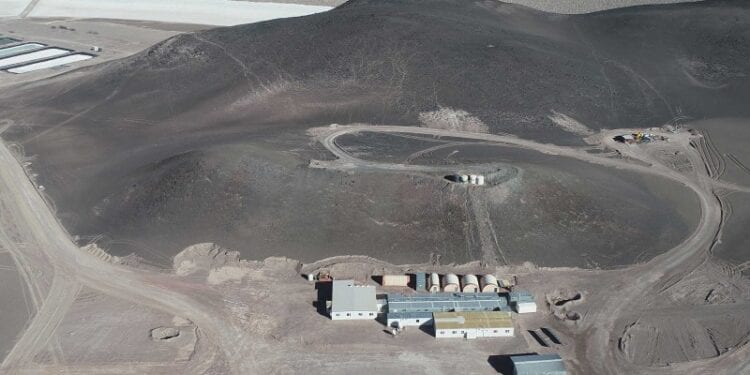Achieves 99.79% Purity At Pilot Plant
Neo Lithium Corp. (TSXV:NLC) has resumed work at its lithium carbonate pilot plant in Fiambalá following its closure due to the COVID-19 pandemic.
The plant has been successful in producing battery grade lithium carbonate being produced using concentrated brine from its wholly-owned Tres Quebradas lithium project (3Q Project) in Catamarca Province, Argentina.
President and CEO, Waldo Perez, said the Plant produced lithium carbonate with a purity of 99.797%, representing the highest purity level attained thus far while using the improved process. The improved process is expected to decrease operational and capital costs while minimising reagent, water and power consumption.
“We continue optimising the process in terms of quality and reagent consumption,” Mr Perez said.
“We are on path to deliver a high-quality product and complete our DFS on time and on budget with a new improved process”
The current lithium carbonate batch is the 13th batch since the Plant started operation in May 2019. Due to the COVID-19 pandemic, the company has stored approximately 50 tonnes of concentrated brine ready to be processed at the Plant.
The company will continue to test batches to optimize the process for the Definitive Feasibility Study (DFS) before turning the Plant into continuous mode in Q2/Q3 2021. On continuous mode, the Plant can produce up to 40 tonnes a year.
The Process
Brine with average grade of 1000 mg/l was extracted from the production wells located in the northern zone of the 3Q project and then evaporated at the company’s nine stage industrial pilot ponds. No chemical reagents were added to the brine other than minor amounts of hydrochloric acid (HCl) for pH control at the final stage of evaporation. Total evaporation time was about one year and the brine concentration was around 3% lithium.
The concentrated brine was then transported by truck to the pilot plant in Fiambalá, which is located 160 km from the 3Q Project. The concentrated brine was treated in the pilot plant with a solvent extraction phase (SX-B) for Boron removal, as well as an scrub and strip phase in order to regenerate the organic solution of SX-B process.
For magnesium removal was used liming addition which was produced in situ from the calcium removal at alkaline pH and carbonation phase to calcium polishing and any remaining Mg and heavy transition metals.
The lithium carbonate process is then completed with three stages of soda ash carbonation, washing and drying.












